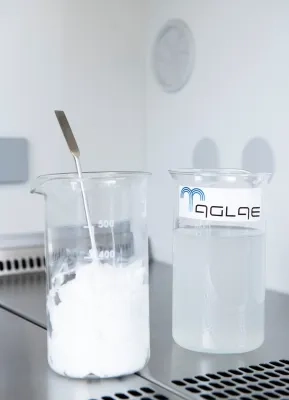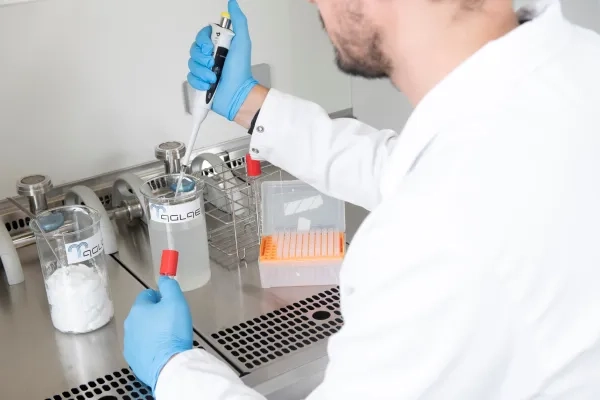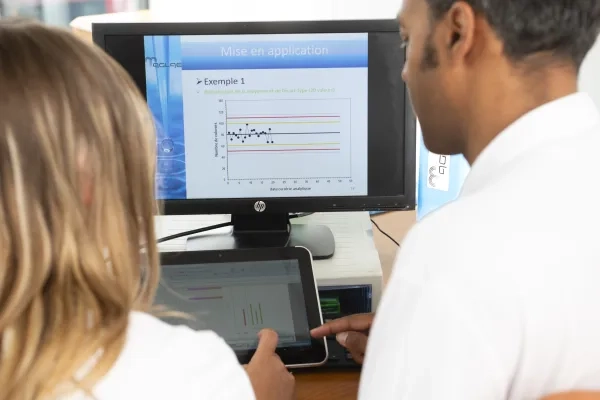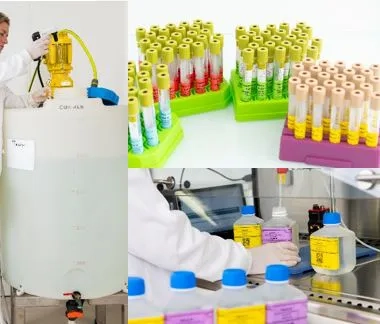+33 (0) 3 20 16 91 40
Microbiology in cosmetics

Microbiological analysis providers and cosmetics industries carry out antimicrobial efficacy tests, the enumeration of aerobic mesophilic bacteria and yeasts/moulds and the detection of specified micro-organisms on cosmetics manufactured by AGLAE.
⇒ AGLAE provides 3 programmes "Microbiology in cosmetics".
AGLAE estimates the analytical performance of participants, enabling them to improve the quality of their measurements on cosmetic products.

Why take part in "microbiology in cosmetics" proficiency tests?
They are carried out as part of self-inspection or regulatory controls. These proficiency tests cover some of the requirements:
- accreditation scope of microbiological analyses applied to pharmaceutical products and cosmetics (check AGLAE's accreditation No. 1-1664)
- regulatory framework linked to marketing authorisations for cosmetic products: it is necessary that microbiological analysis providers and the cosmetics industry inter-calibrate in order to achieve comparability of measurement results.

What types of samples does AGLAE propose to analyse in these intercomparisons?
AGLAE manufactures and dispatches cosmetic products such as creams and lotions suitable for microbiological testing of cosmetics.
Preservatives are used in order to
- check the effectiveness of the neutralising agent for the challenge test
- check the applicability of the method (neutralisation of the preservative/verification of the effectiveness of the neutraliser) for enumeration and detection tests

What analyses do the laboratories carry out?
- Challenge test: antimicrobial efficacy tests to assess the antimicrobial protection of cosmetic products. Laboratories determine reduction rates in accordance with ISO 11930 'Cosmetics - Microbiology - Evaluation of the antimicrobial protection of a cosmetic product' or by using their in-house analytical procedures.
- Enumeration of aerobic mesophilic bacteria and yeasts/moulds: according to ISO 21149 or 16212 respectively or equivalent method.
- Detection of specified micro-organisms: Escherichia coli, Candida albicans, Staphylococcus aureus and Pseudomonas aeruginosa according to ISO standards 21150, 18416, 22718 or 22717 respectively or equivalent method.

Added value of AGLAE "Cosmetics" interlaboratory tests
- AGLAE provides 'challenge test in cosmetics' interlaboratory comparisons under accreditation.
- Since its creation, AGLAE has specialised in interlaboratory tests on microbiological analyses and, since 2016, on cosmetics.
- AGLAE provides an assessment of the individual performance of each laboratory, as well as an assessment of the dispersion of results across the profession, with a view to estimating measurement uncertainty and identifying areas for improvement (assessment of the effect of practices and media suppliers).

Other proficiency tests that may be of interest to you
AGLAE also provides microbiological analysis service providers the opportunity to improve the quality of their measurements:
- water microbiology
- water for medical use
- bacteriology - microscopic examination - wet mount and Gram stain (see details in "Medical biology")
See all AGLAE's tests
